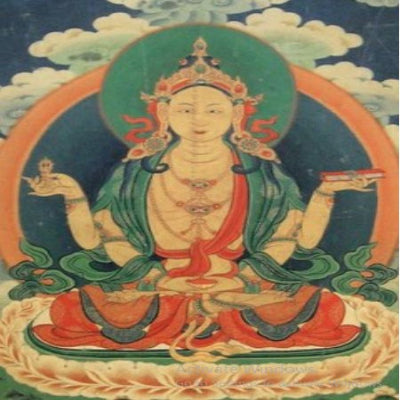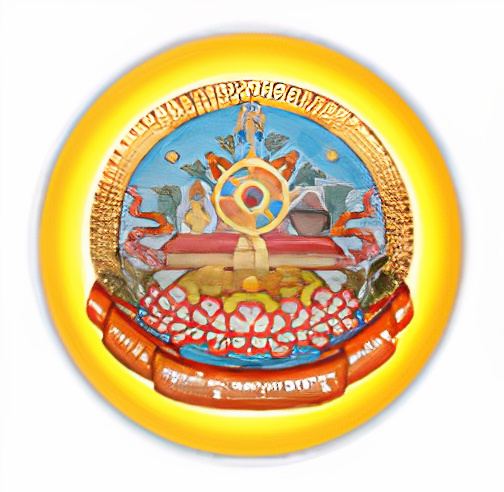Sed Gyued Monastery
Heart Sutra प्रज्ञापारमिताहृदय 心經
Heart Sutra प्रज्ञापारमिताहृदय 心經
Couldn't load pickup availability
The Heart of the Perfection of Wisdom
It is a popular sutra in Mahāyāna Buddhism. IIt is a condensed exposé on the Buddhist Mahayana teaching of the Two Truths doctrine, which says that ultimately all phenomena are Śūnyatā.
It has been called "the most frequently used and recited text in the entire Mahayana Buddhist tradition.
In the sutra, Avalokiteśvara addresses Śariputra, explaining the fundamental emptiness (śūnyatā) of all phenomena, known through and as the five aggregates of human existence (skandhas): form (rūpa), feeling (vedanā), volitions (saṅkhāra), perceptions (saṃjñā), and consciousness (vijñāna). Avalokiteśvara famously states, "Form is Emptiness (śūnyatā). Emptiness is Form" and declares the other skandhas to be equally empty—that is, dependently originated.
Avalokiteśvara then goes through some of the most fundamental Buddhist teachings such as the Four Noble Truths and explains that in emptiness none of these notions apply. This is interpreted according to the two truths doctrine as saying that teachings, while accurate descriptions of conventional truth, are mere statements about reality. They are not reality itself and that they are therefore not applicable to the ultimate truth that is by definition beyond mental understanding. Thus, the bodhisattva, as the archetypal Mahayana Buddhist, relies on the perfection of wisdom, defined in the Mahāprajñāpāramitā Sūtra to be the wisdom that perceives reality directly without conceptual attachment, thereby achieving nirvana.
The sutra concludes with the mantra gate gate pāragate pārasaṃgate bodhi svāhā, meaning "gone, gone, everyone gone to the other shore, awakening, svaha.




